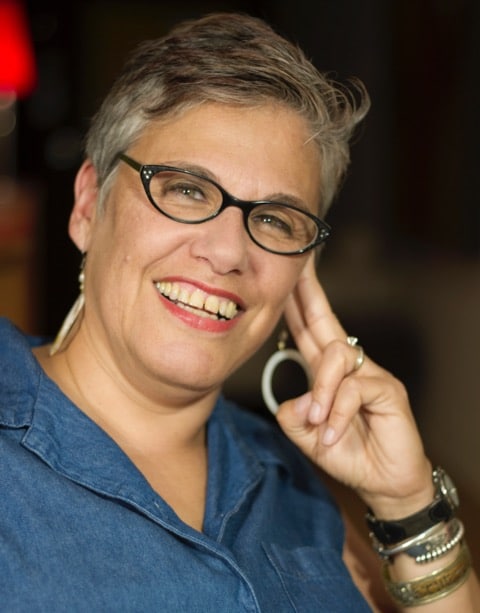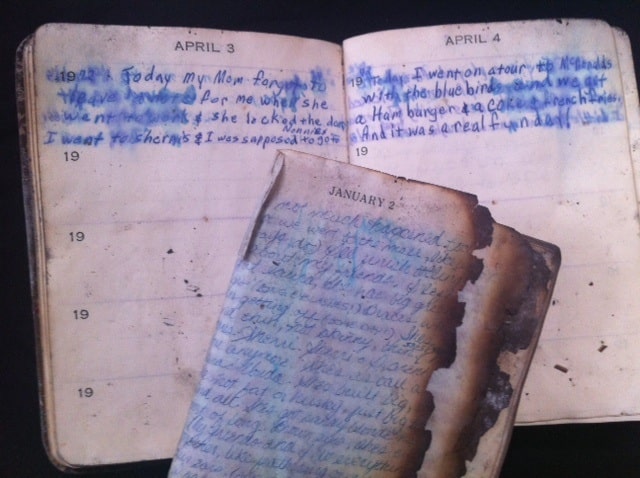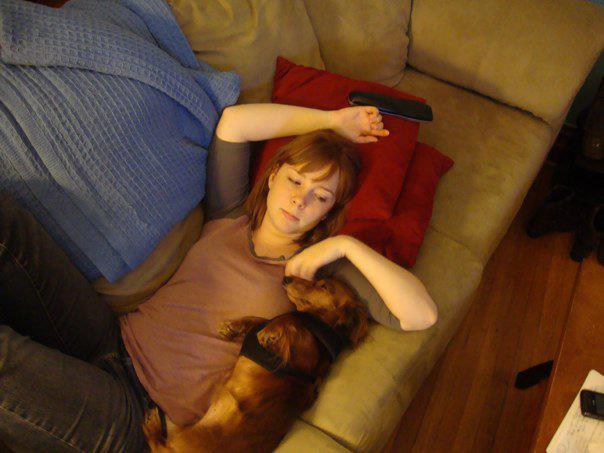By Meghan O’Dea
“Watching online as an irreplaceable monument to human history goes up in flames while helpless to do anything about it is extremely 2019,” read a Facebook post from Gin and Tacos, the popular political blog cum meme factory. The update came shortly after news broke that the Notre-Dame de Paris, arguably the best known cathedral in the world, was on fire and might burn to the ground.
While it was hard to argue with that take, given that our sitting President felt his response to the tragedy best included ill founded advice about firefighting, it seemed to me that it wasn’t just extremely 2019, but summed up the majority of my adult life. In the roughly fifteen some odd years since I began seriously considering things like my own mortality and the permanence of the universe, it was often easy to feel that the good times were already long gone, the best of human history long since converted to a conflagration that my generation would watch dim into embers.
After all, I came of age in the wake of another iconic building burning the ground in a cataclysm of Biblical proportions, when a plane flew into the World Trade Center on September 11th. George Bush Jr. was President. The Sopranos was still on air, just a few years into its six season meditation on death, decay, and the inherent moral struggle of American in the early aughts.In hindsight it seems clear that whatever the precise moment my adulthood actually began, if there is such a quickening, all our narratives neatly cleave into a long series of befores and afters.
Isn’t that always the way of both serious tragedy and adolescence? The prelapsarian prologue and whatever slouching epilogue follows the present narrative in which we can’t help but center ourselves. Here we are again, I thought to myself as Notre Dame’s iconic spire crumpled into ash like a spent stick of incense, glowing orange at its dying core. Another casualty in the anthropocene. Another horror strangely juxtaposed with an otherwise ordinary workday.
In a strange bit of serendipity, I was rewatching an episode from the final season of The Sopranos the day before the Notre Dame fire. The episode that kept me company as I carefully packed dirt around the thin, white roots of a fiddle leaf fig tree was ”Cold Stones,” in which matriarch Carmela Soprano and her friend Ro, a fellow mob wife, visit Paris together.
As the pair tour the ruins of some Roman baths, Carmela becomes overwhelmed by the weight of history, and all its banal glory. “Generation after generation, hundreds and hundreds of years, all those lives,” she says, gazing upward in unconscious imitation of the pose assumed by a whole host female saints, not to mention the blessed Virgin Mary, in countless iterations in the Western canon.
Carmela raises her eyes to the heavens, appearing for a moment as if she is about to ascend into inspiration. Instead, she looks down, her nigh-spiritual reverie abruptly cut short by the abrupt intrusion of her own mortality. “It’s so sad,” she says, trying not to cry.
She reaches out to touch the rough stone wall next to her, the tangible evidence of the kind of immutability of great cities that stands in such stark contrast to the way our own lives shuffle insignificantly on regardless of the bigger picture. Sometimes the synchronicity of the universe brings me immense joy, and sometimes it seems to highlight many of the themes that make art like The Sopranos so compelling, that sense of the inevitable, of decay, that the golden age has passed, never to return.
When it seemed for a few hours as if Notre Dame might really be reduced to nothing but ash, the sense of mourning I felt was, like most of the other things I have grieved for on various occasions, not exactly the thing in and of itself (as philosopher Immanuel Kant would put it), but for whatever that thing represented. I don’t mean to say I was unmoved by the loss of one of the greatest structures built by man, a thousand year old emblem of faith and art and durability. What I mean is that, in the face of such an abstract loss—the loss of a place I have been to only once and over a decade ago—I instead turned to something a little closer to home, both literally and metaphorically.
Watching Notre Dame burn, my thoughts turned to the person I knew who must be most affected, a close family friend who is like an aunt to me, a French teacher who has been to Notre Dame innumerable times in her life and has brought many students to see it for the first time. I thought of her not only because of her connection to the place, but because she suffered a far greater loss last year, when her husband, an art historian and beloved professor, passed away suddenly of pancreatic cancer.
No one saw it coming. Just a few weeks prior, he had stood at the top of Machu Picchu with my parents and a group of university honors students. How unfair that she should suffer such a loss, only to be confronted with another, however more abstract, so soon.
I myself had been with Dr. Townsend on another such college enrichment trip fifteen years ago when I saw Notre Dame and the nearby Sainte-Chapelle. At the time I was vaguely unimpressed in the way that only privileged, myopic teenage girls can be. The city I wandered felt far away from A Tale of Two Cities and Toulouse Lautrec and the Moulin Rouge and Monet. It felt like any other large, European city, no more in touch with its romantic past than I am now to the brash, careless young woman I am learning to no longer be.
Notre Dame was a beautiful item on our itinerary, but at the time it seemed like a place I could easily come back to. There was no urgency to the occasion. Only a few cockeyed photos are preserved in our digital family album. I’m embarrassed to admit that I barely remember it. And yet I spent the day nervously checking the news for updates on the state of the cathedral. I felt my stomach churn as I watched slightly stale footage of the spire falling an hour or so after the fact.
After work, I head to the bar, as I have after so many other tragedies— Dr. Townsend’s death included. The before and the after. By then, the fire had only just begun to cool, emergency responders saying that while damage was extensive, the blaze did not create a total loss. No one had been killed. The injuries were few. Still, I am more tempted than I have been in several newly sober months to order a glass of red wine. It seems an appropriate toast to gay Paris, where I read on Twitter that French resilience includes a blend of laughter, tears, and du vin.
Instead, I request a cold bottle of Einbecker, a German beer— “alkoholfre!” it proclaims on the label. The bar I’ve chosen reliably keeps a case of NA beers in the fridge, much as the pharmacy that once took up this storefront kept a variety of pain relievers in stock, some more benign than others. This is the kind of hip joint that capitalizes on nostalgia for things like old pharmacies, where the old lathe walls are left purposefully exposed, the wainscoting topped with stacks of antique books, two of the pharmacists’ old diplomas and certificates still framed and decorating the walls.
As I slide my credit card across the counter I realize the lyrics to the song that’s playing are not only improbably in French, but ridiculously on the nose. “L’argent est sur la table” sings Mark E. Smith, the lead mercurial singer of post-punk British outfit The Fall. He died last year, cancer of the lungs and kidneys. “Le money est sur la table,” the song goes. “The money is on the table in the brick house refurbishment of pubs in the hideaway.” That old, double-edged serendipity, the closest thing I possess to a higher power.
What blindsided Carmela in that episode “Cold Stones” was what blindsided me first as a naive, ignorant teen: that sensation of echoes throughout time and history, the reverb. The way a song randomly selected by an algorithm can seem to highlight the day’s events, which in turn can provide one the space and language to grieve a death that was too close for comfort. The way a thirteen year old episode of television is made newly relevant simply because I happened to rewatch it just preceding a tragedy that evokes a similar, if more acute, sense of morbidity and loss.
Why do I reflect on all this? What does it all mean? As a writer my job is to tease meaning from seemingly disparate events and braid them into something sturdy we can run through our hands to reassure us, the way Carmela reaches out to run her hands over that rough stone, the way I reach out to David Chase’s work to help explain my feelings about Notre Dame. But I struggle here to make sense of all these artifacts, to construct anything solid out of all this ash.
Edward Burmila, the political science professor behind Gin and Tacos, made an astute observation about our collective helplessness as we watch Notre Dame, and the world, burn. His post smacks of the cheerful digital nihilism that has special appeal for Gen Xers and Millennials who slogged through the Great Recession only to reach a span of years in which a generation of beloved artists and idols began to drop like flies, and when too many of the survivors were revealed to be a bunch of rapists, abusers, and racists.
It’s a moment in which populism and extremism and hate have been resurrected in our national consciousness like the villain at the end of a slasher film who the characters naively assumed to be long dead. We fret about social security and preventable epidemics and climate catastrophe—a whole other type of conflagration that looms just over the horizon. And yet we go on living our lives as best we can, like all those generations Carmela references at the baths, like the fifty some-odd generations that have lived and died since the first stone of Notre Dame was laid.
We consume our fatalism in bite-size chunks, a scrap of digital ephemeral quickly read and disposed of, if not entirely forgotten. But in this there is a strange, ironic sort of hope to be found in what appears to be a well of despair. How many generations before us have felt a similar sense of doom, have watched their own disasters unfurl, and have carried on because there was no other choice, because this is what our parents and aunts and uncles and loved ones would have us do?
Death comes for us all, it’s true, as cruel and unfair and undesirable an outcome as that may be. But first life has a peculiar habit of continuing to unfurl. And there are forms of resurrection, too, we can’t seem to extinguish, a human tendency towards hope. After all, that’s what makes Notre Dame such a potent symbol even for those, like me, who have barely scratched its surface, or for the vast majority who have never been at all.
Even in what seems like— and in many cases truly is— an era of unprecedented loss, both personally, nationally, and globally, what else can we do but carry on living, no matter how futile it seems or uncertain the future may be? Perhaps it is simply enough to raise a glass of whatever gives us strength and courage, to give our best effort at making the dead proud, and to try our damndest to head off the next inevitable blaze.
Meghan O’Dea is a writer and editor who traded southern Appalachia for the Pacific Northwest. She writes about camping and the outdoors by day for The Dyrt magazine. In her spare time she travels, hikes, and writes essays and articles that have been published in Bitch Magazine, Playboy, the Washington Post, the Rumpus, Nylon, Refinery29, and more. She loves opossums, cats, and small houseplants.
****
Upcoming events with Jen
****
THE ALEKSANDER SCHOLARSHIP FUND






